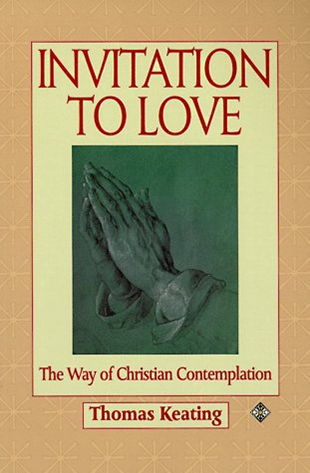"Another practice for daily life is to work an active prayer sentence of six to twelve syllables into our subconscious memory by saying it at moments when we are not engaged in a kind of activity that requires our attention. It can be a sentence from Scripture or words of our own choice. The hesychastic practice of saying the 'Jesus Prayer' in Orthodox Christianity is a model for this discipline. According to the teaching of The Way of the Pilgrim, when the 'Jesus Prayer' has been repeated day after day for a long time, it enters the heart and starts to repeat itself. The Desert Fathers used to say verses from the psalms. Several of their favorites have been enshrined in the divine office: 'Oh God, come to my assistance! Oh Lord, make haste to help me!' Or, 'Our help is in the name of the Lord.' It takes a lot of determination and time to work a sentence into our subconscious memory by saying it again and again, but these times will present themselves if we are alert to make use of them. Most people spend a couple of hours a day in more or less mindless activity — taking a shower, doing the dishes, driving a car, walking to work, waiting for a bus or for the phone to ring.
"Once worked into the subconscious memory, this new 'tape' tends to erase the prerecorded tales already in place. Whenever one of the emotional programs is frustrated, a painful emotion promptly records the fact, and an appropriate commentary arises from our store of prerecorded tapes: "How can this happen to me? . . . How cruel everybody is to me! . . I'm no good." If we have worked a sentence or two into our subconscious memory that is about the same length as our normal commentaries, it erases the former tapes and this reduces the force of the upsetting emotions. If there is no commentary, the process of building up emotional binges is less likely to take place. That gives us a neutral zone in which we can decide what to do.
"The following story exemplifies the effects of the active prayer sentence. A certain woman was driving down a country road, hugging the center to avoid hitting a boy on a bicycle. A man drove up behind her, who was in a great hurry and wanted to pass her. He did not see the boy on the bicycle and did not understand why the woman was nudging the center of the road. He kept honking the horn, meaning, 'Get out of the way!' When she did not move over to let him pass, his program of rage and accompanying commentaries took over. Pushing the accelerator to the floor, he zoomed around her and, as he passed, rolled down the window, shouted obscene words at her, and spat right in her face! Anger, shame, hurt feelings, and grief all started to surface in the woman. At the same time, her store of commentaries also began to arise: 'How could someone be so cruel? How could God allow this to happen? . . . All men are beasts!'
"Just as she was about to lose control, up came her active prayer sentence: 'How sweet and pleasant it is for people to live together in unity!' The new tape erased the old tapes, and she entered into a neutral zone where she was not preprogrammed to react one way or the other. Into that empty space rushed the Holy Spirit saying. 'Love the guy!' A wave of peace flooded her whole being. She was filled with love, joy, and all the other fruits of the Spirit. She forgave the man from the bottom of her heart and drove on down the road as if she had just received a bouquet of roses.
"This example points in a special way to the practical purpose that all the various means of bringing the effects of contemplative prayer into everyday life actually serve. They cultivate a neutral zone or open space within us from which we can decide what to do. That is true freedom. The neutral zone enables God, according to circumstances, to manifest all the fruits of the Spirit in and through us: charity, joy, peace, patience, gentleness, goodness, self-control, and meekness."
